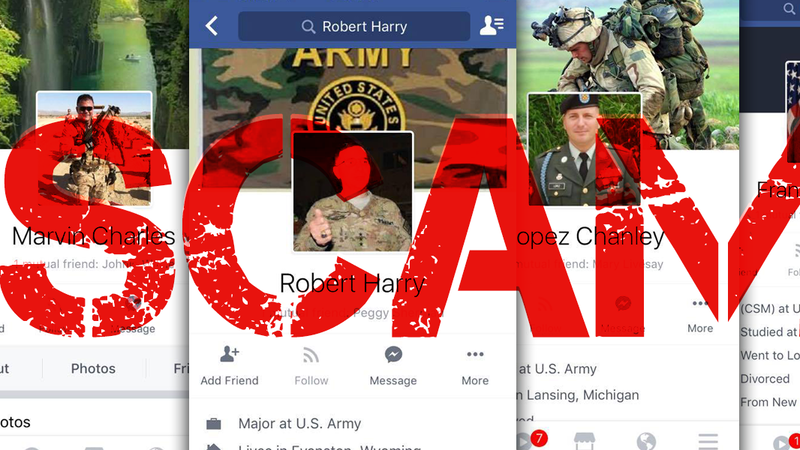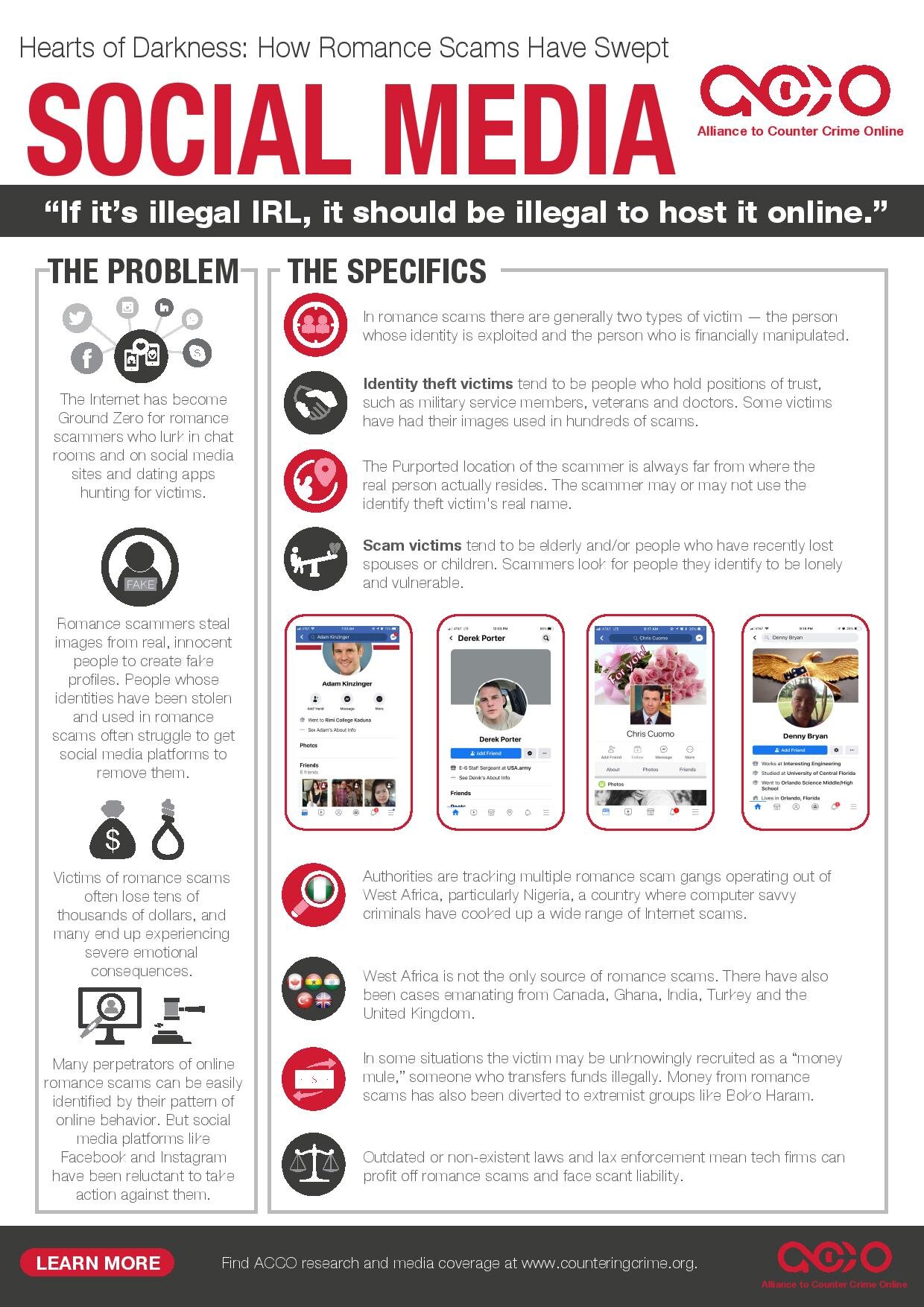Criminals Exploit Social Media for Romance Scams
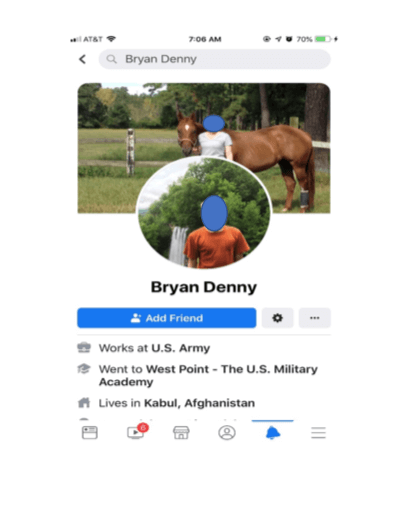
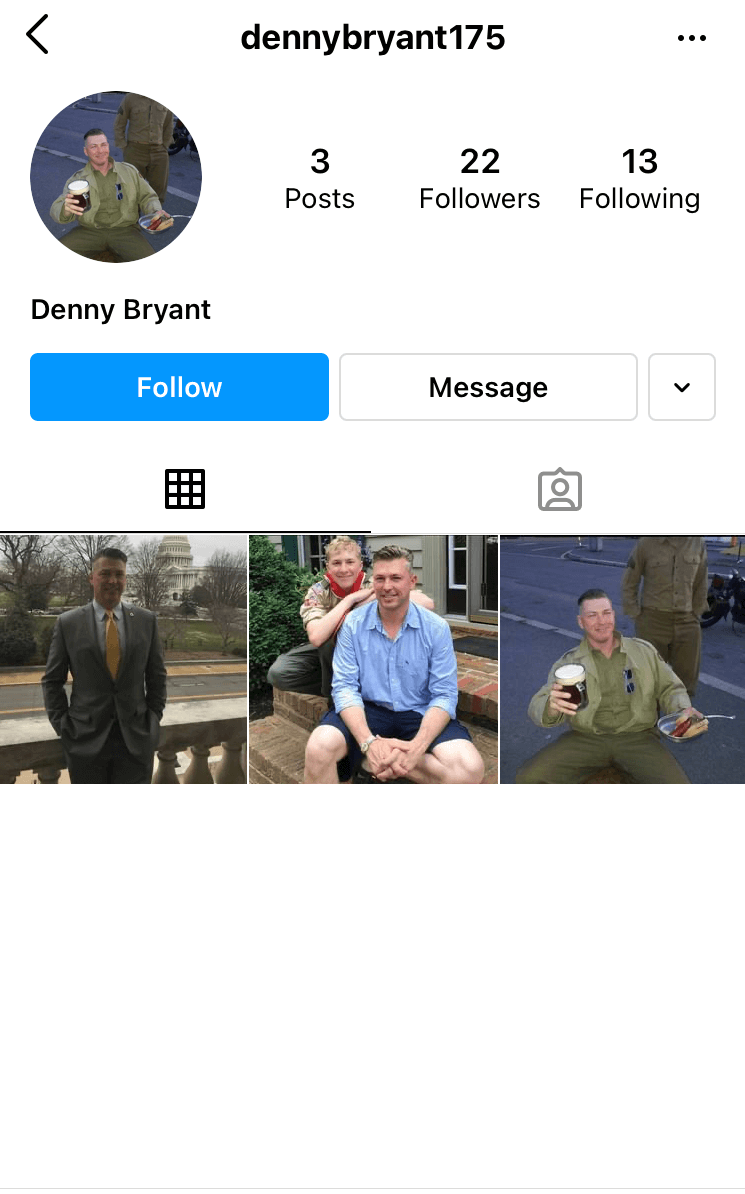
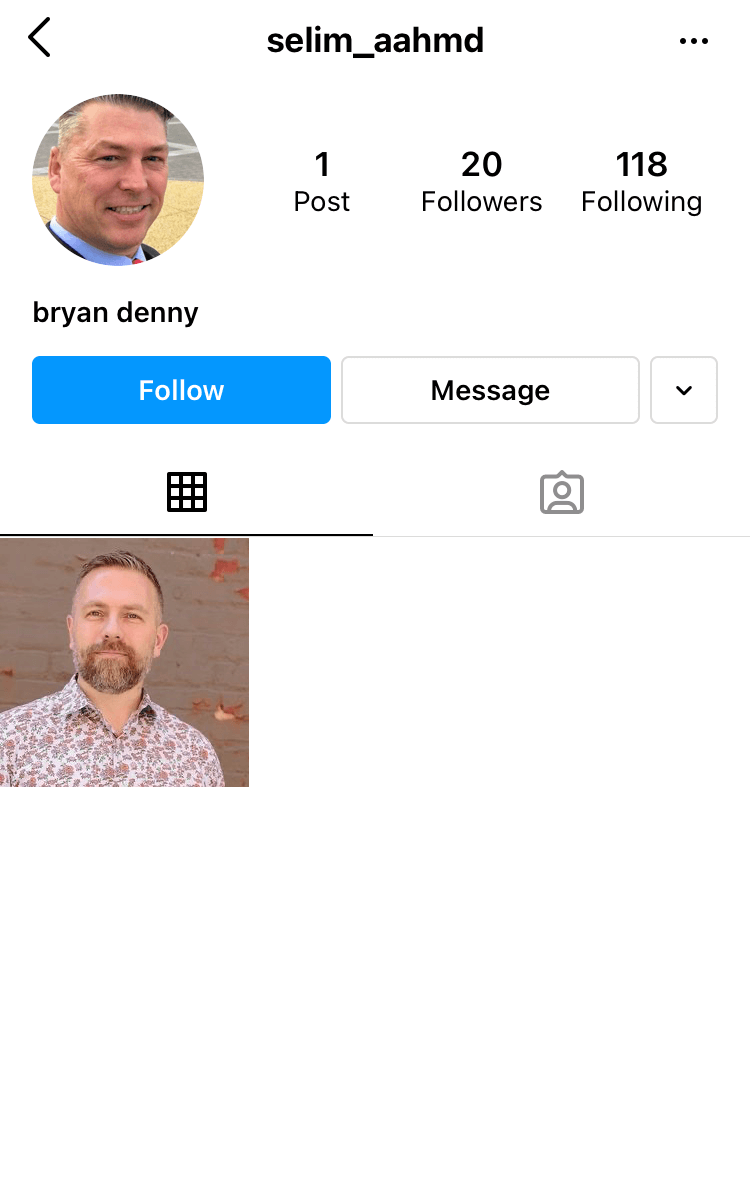
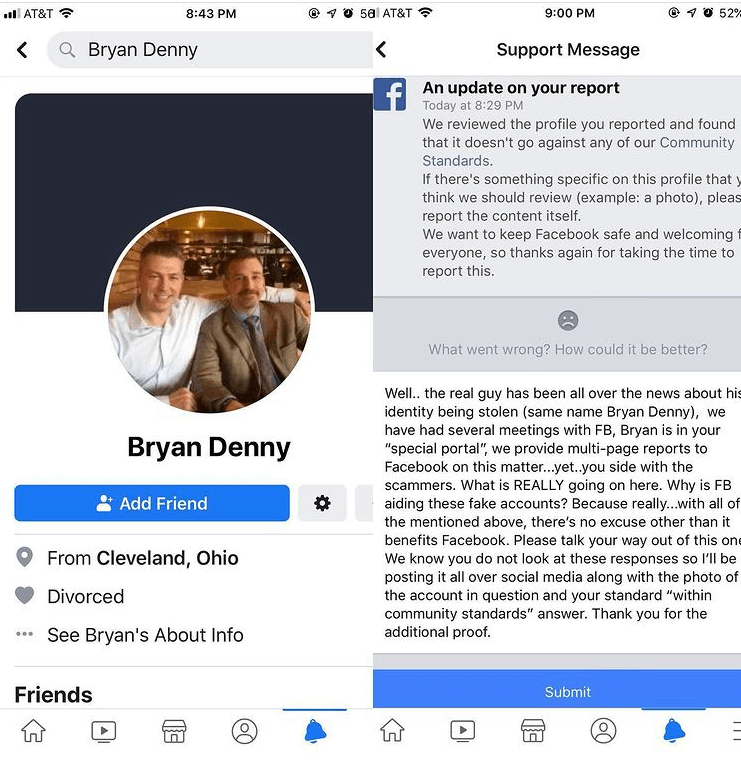
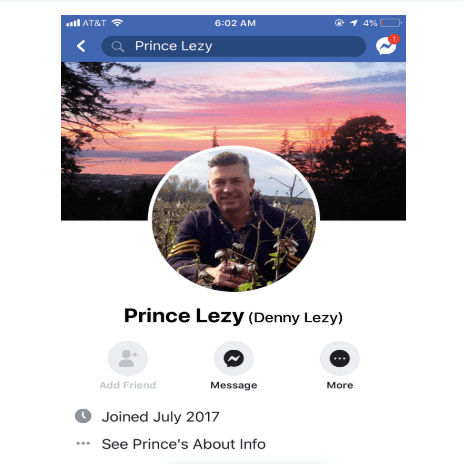
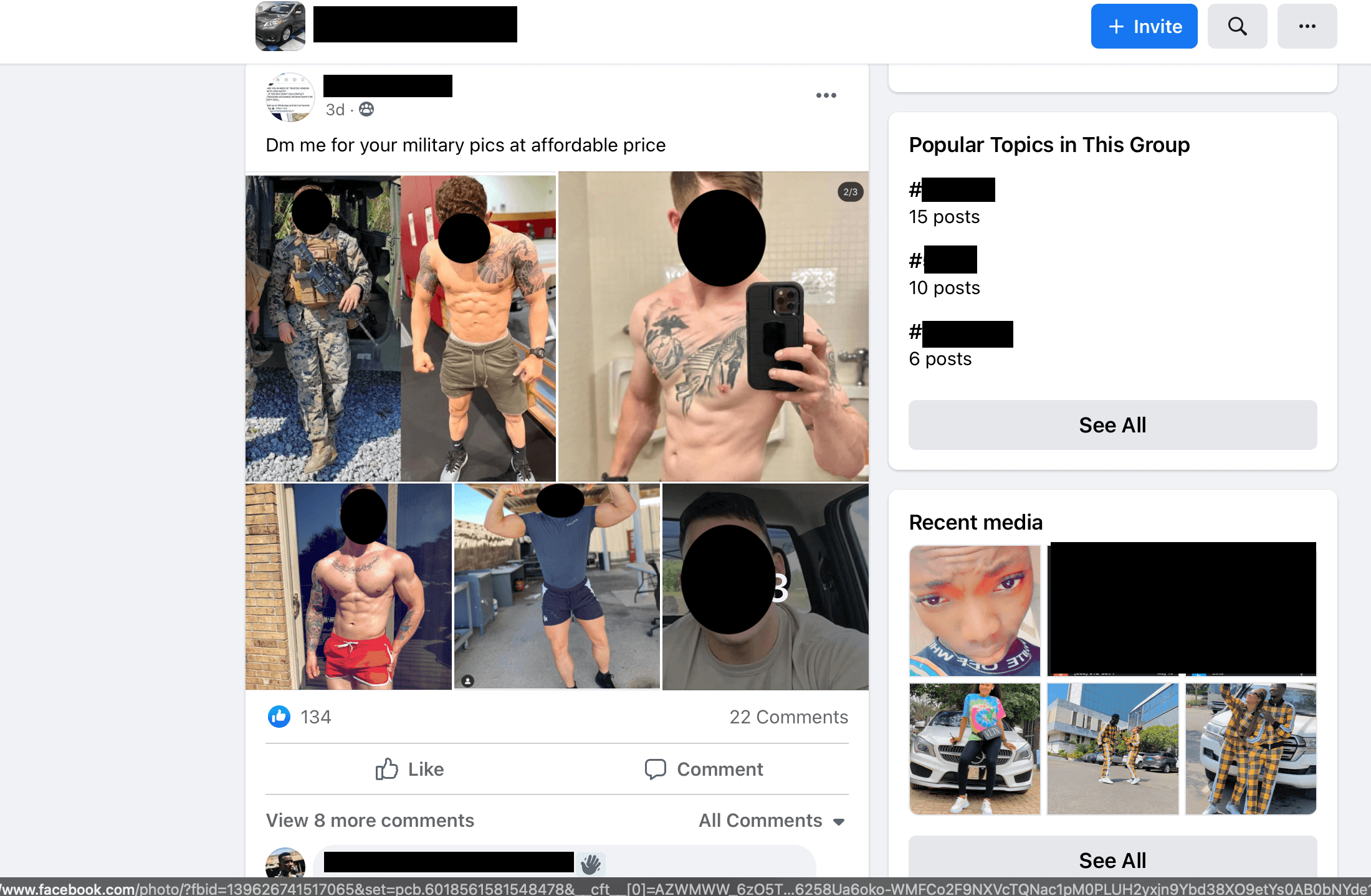
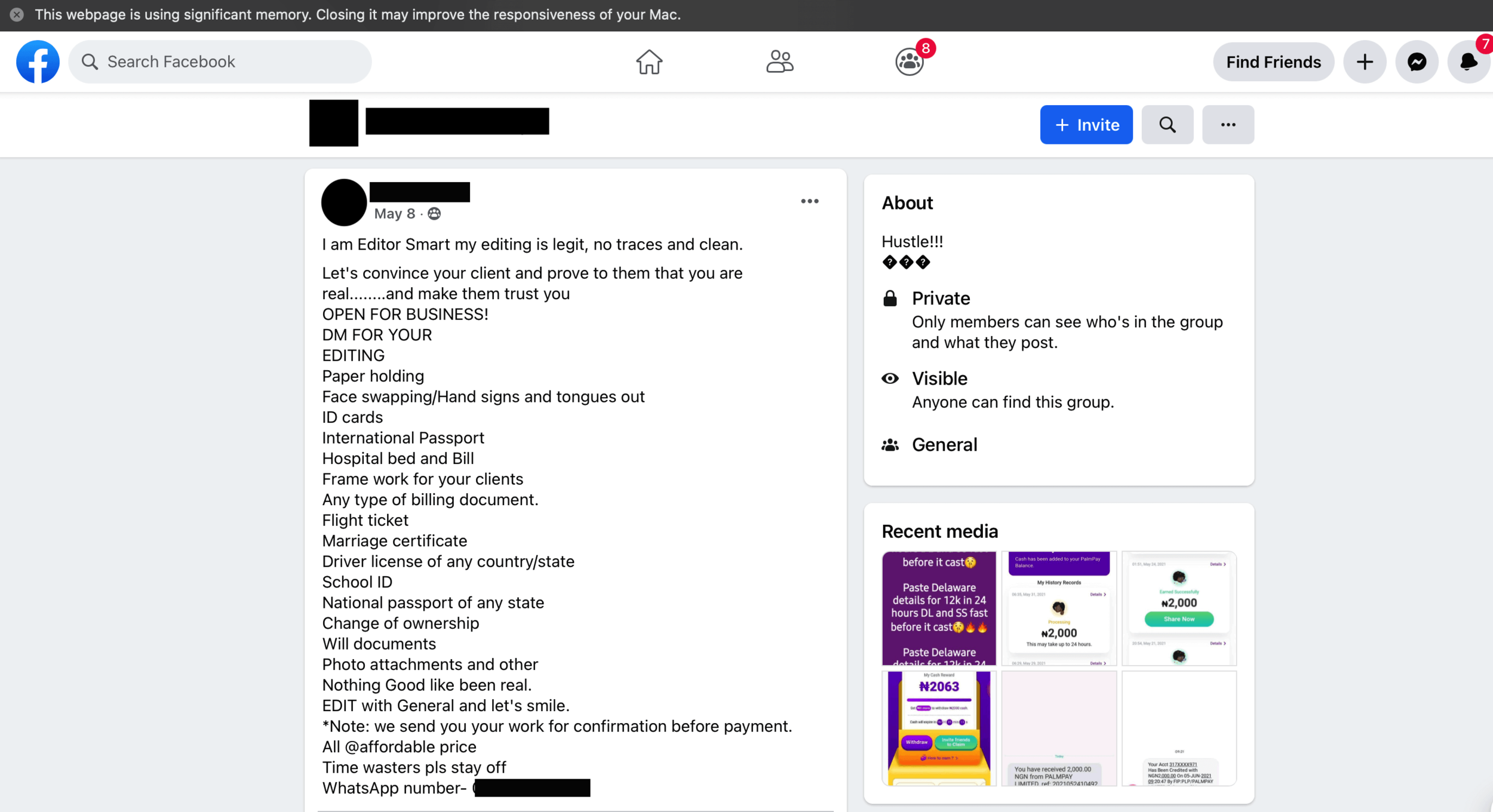
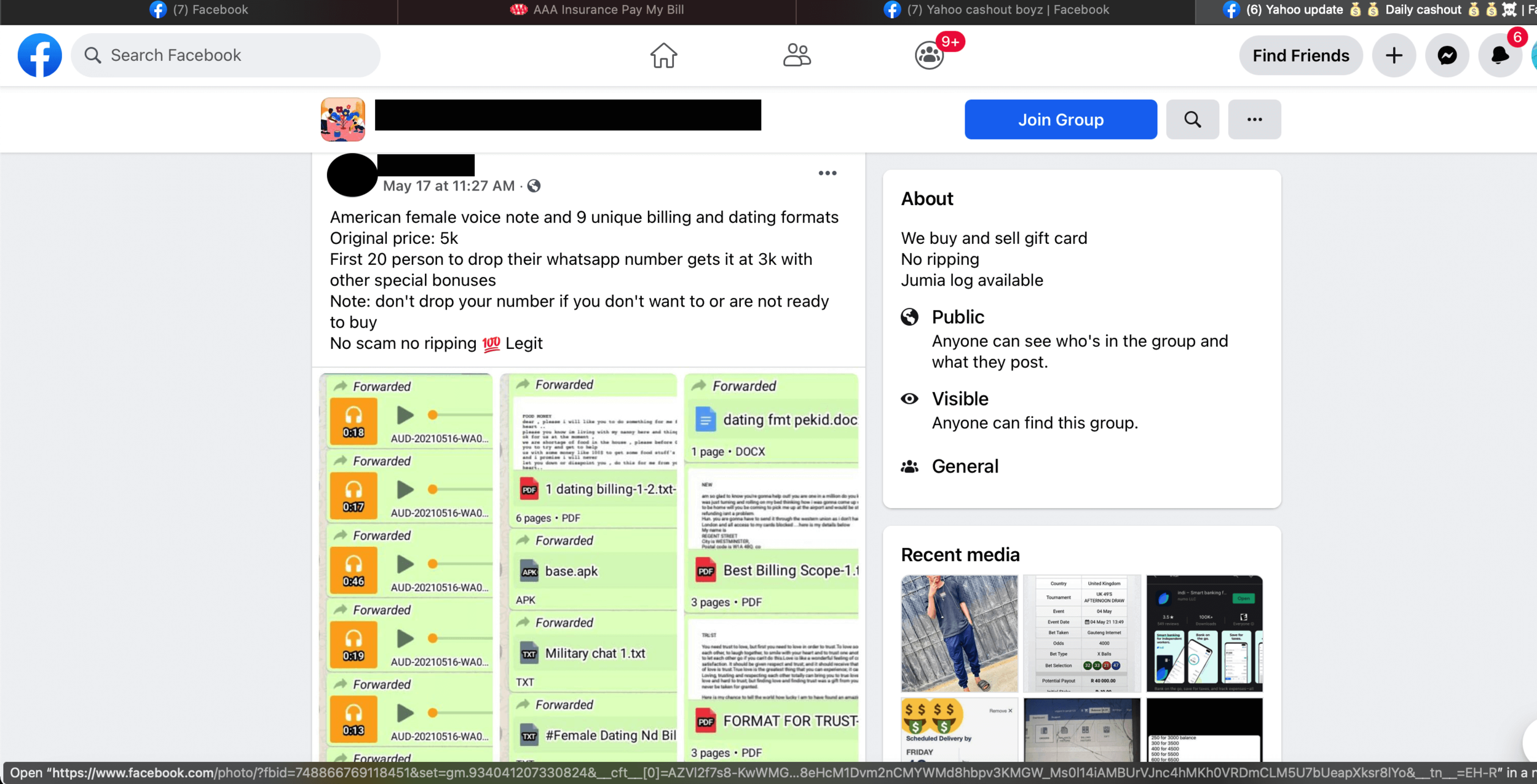

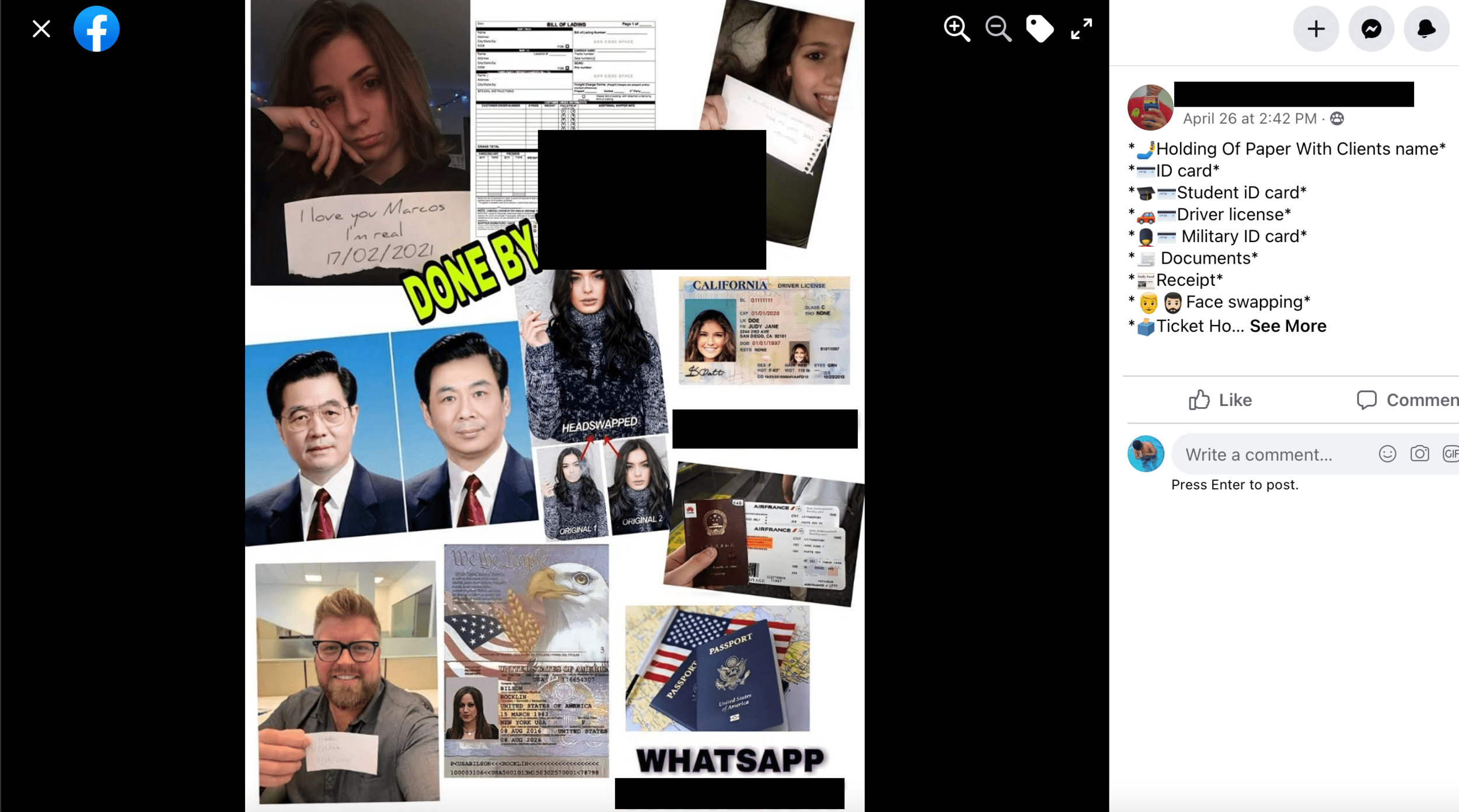
Imagine you’re surfing social media, when a handsome stranger friends you, or leaves flattering comments on one of your posts. You click on the profile, and begin communicating. Before you know it, the two of you are chatting almost every day. The stranger claims to be a member of the military, a physician or a first responder, and he/she is keen to meet you in person.
Romance scams have quadrupled in the last year, which the FBI’s Internet Crime Complaint Center adds up to more than $600 million in losses in 2020 alone. According to the FBI’s Chief of Financial Crimes Section, this number is likely just the tip of the iceberg, because many victims are too ashamed to report this type of fraud, even though it appears to be becoming more prevalent.
Two ACCO experts, Kathy Waters and Bryan Denny, are on the frontlines of fighting this problem. Together they founded Advocating Against Romance Scammers (AARS), which raises awareness and pushes for legal reform to counter romance scams and identity theft. Kathy and Bryan founded AARS after a friend of Kathy’s mom sent money to a scammer posing as a military general. Kathy tracked down the man whose identity had been stolen, Col. Bryan Denny (Ret.) and since then, the two of them have worked tirelessly raising awareness both among the general public and U.S. lawmakers.
As Waters and Denny explain, romance scams are more than just theft. They are crimes of manipulation, extortion and identity theft that result in both financial loss and also psychological and emotional impacts that can have long-term negative consequences, ranging from financial ruin to emotional breakdown or suicide.
In each scam there are two types of victims, those people whose identities are exploited and those who are manipulated. The identity theft victims tend to be people in positions of trust, such as military service members, veterans and doctors. Their alleged locations are never in the same place of the manipulated victims. Rather, the scammer convinces the manipulated victim to provide money for seemingly legitimate costs such as travel visas, plane tickets and hospital bills. They rarely ask the victim to send money by bank transfer or PayPal, often opting for gift cards that can be turned into cash and which are hard to trace. The scammed survivors tend to be elderly, and criminals appear to target vulnerable folks who have lost their spouses or children.
Authorities believe that a lot of romance scammers operate out of West Africa, particularly Nigeria, a country where computer savvy criminals have cooked up a wide range of Internet scams. One notorious group of scammers calls themselves the “Yahoo Boys”, referring to Yahoo Messenger, the system they used when romance scams first emerged twenty years ago. Sometimes, money earned from such scams get diverted to African extremist groups like Boko Haram.
Creating fake profiles to scam people for money is a violation of Facebook’s Community Standards, and the firm says it has invested in technology and human reviewers to ensure that people use their real identities on their sites, however Denny and Waters warn these systems are far from working perfectly. When they met Facebook Inc.’s Safety and Security Team regarding their data, reports and findings, Denny provided Facebook with 51 photos of him that scammers have exploited in order to test a new security system the firm was rolling out. Months later, Denny could still find scammers using his images. The New York Times estimates that the number of active fakes has steadily risen to about 120 million across the Facebook family of platforms.
Kevin Snook, whose identity has been stolen and used in romance scams, told Waters and Denny, ““I have reported to Facebook over 3,000 fake profiles. Facebook claims to have 2.8 billion active users. If 3,000 of them are me then the real scam is Facebook’s accounting. Perhaps that’s why they don’t take action on this even though they have the technology to do so.”
Community Substandards
In their 2021 investigative report, Community Substandards, Waters and Denny created a fake Facebook account to infiltrate the Yahoo Boys. They discovered 24 Facebook Groups blatantly exchanging tips, promoting how-to videos and selling fake government documents and stolen photos from real people.
They also looked into YouTube, where they found information videos promoting criminal enterprises such as “how to scam”, “how to make fake videos” and “how to hack social media accounts.” Over a 30 day period, video views and subscribers significantly increased, proving that there is demanding interest in romance scams.
On both platforms, Waters and Denny reported this criminal activity using the firms’ reporting tools. One month later and all the Facebook Groups were still active and running; one had grown to 50,000 more members. All of the YouTube videos were still up as well and had significantly increased in video views and subscribers, proving that there is a demanding interest in romance scams.
CDA 230
Under the outdated Section 230 of the Communication Decency Act, social media platforms are not legally liable if criminals abuse their platforms to carry out romance scams or other frauds. So while romance scams are against Facebook’s Community Standards, the firm does not enforce these rules because romance scammers are active users of multiple profiles and frequent participants in groups and chats, increasing user metrics. Together, ACCO and AARS are pushing for reform of the laws governing tech, to make tech platforms liable for hosting criminal fraudsters
Are you with us? SIGN OUR PETITION

